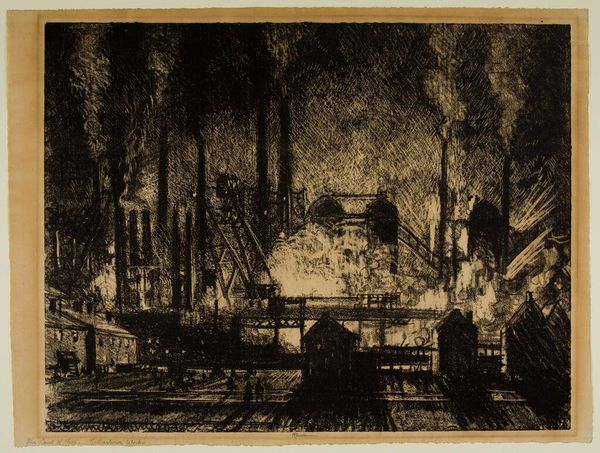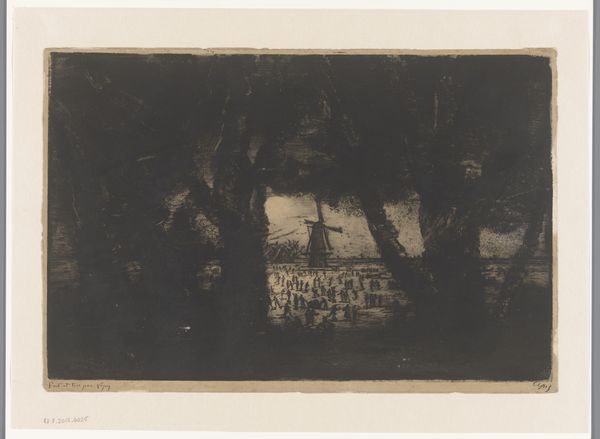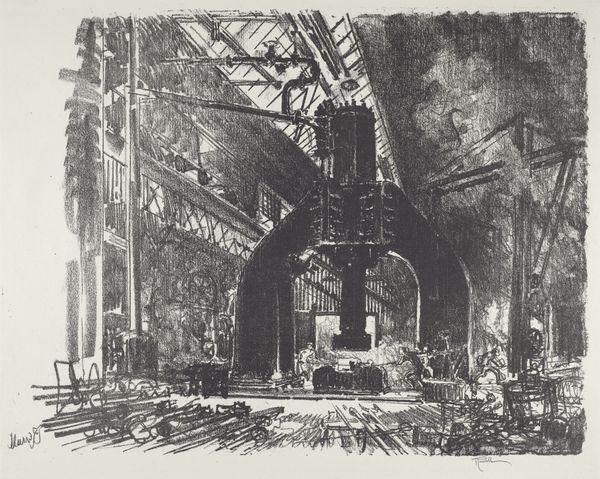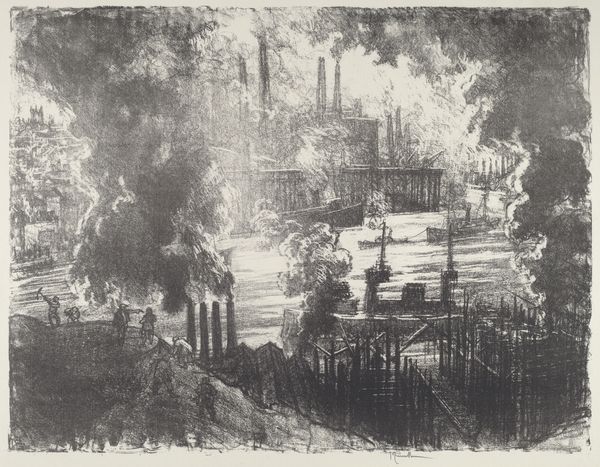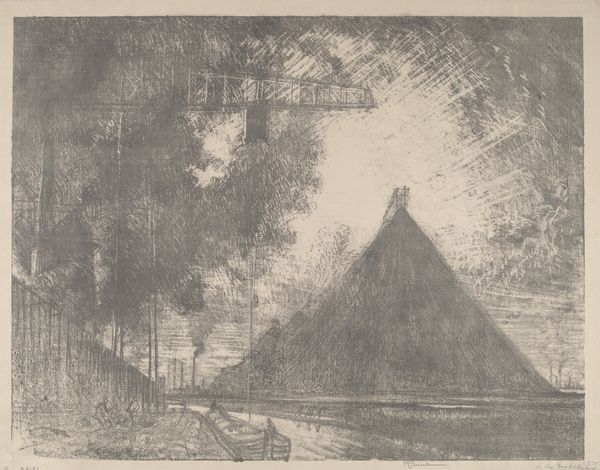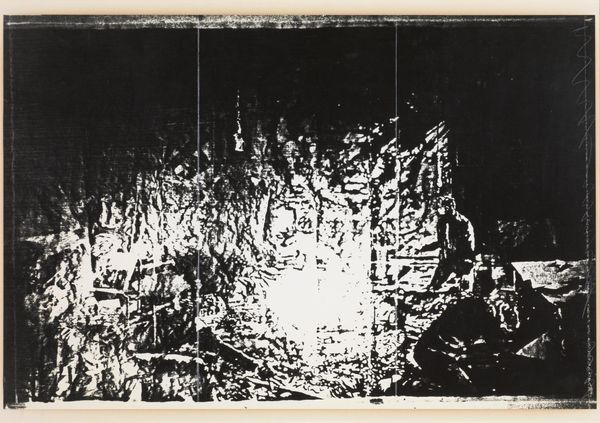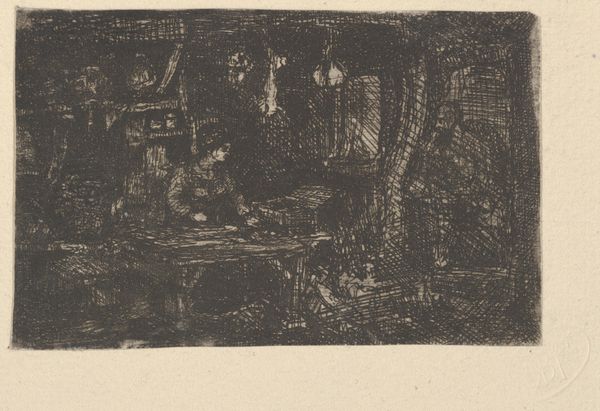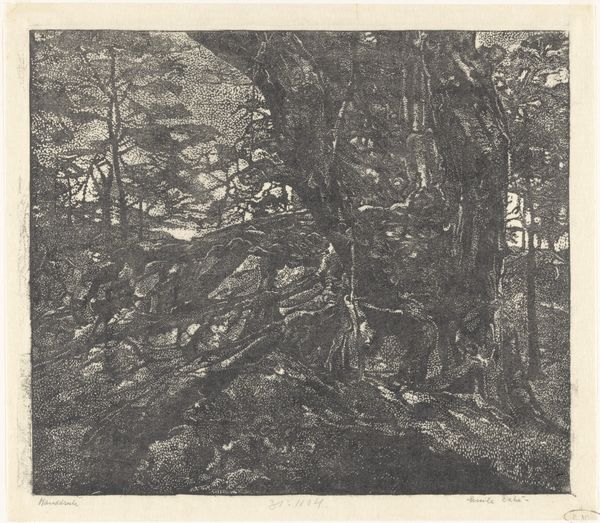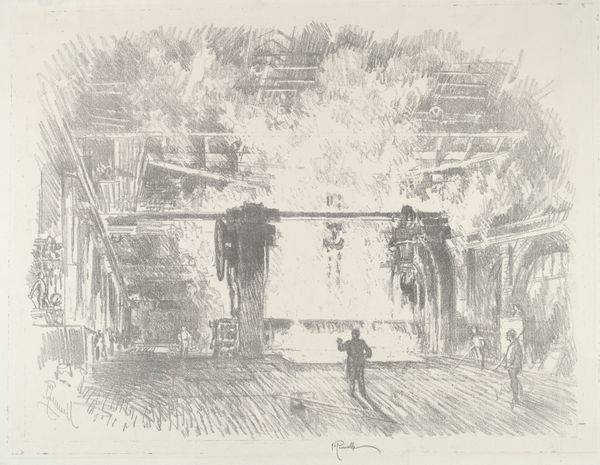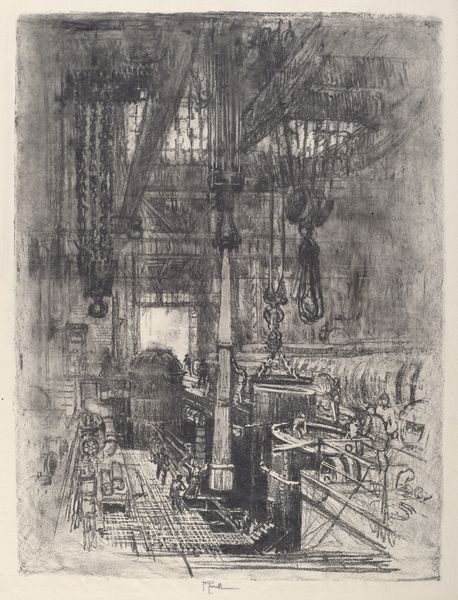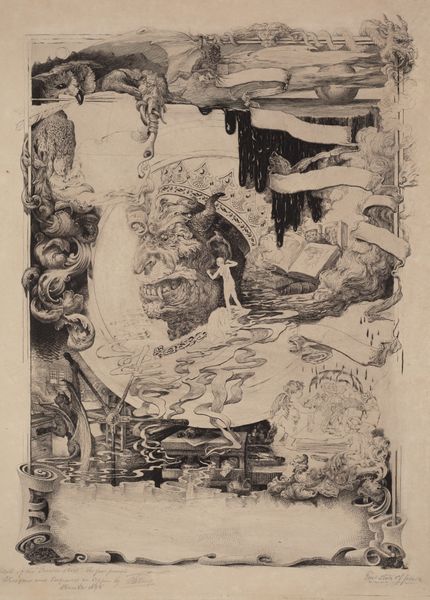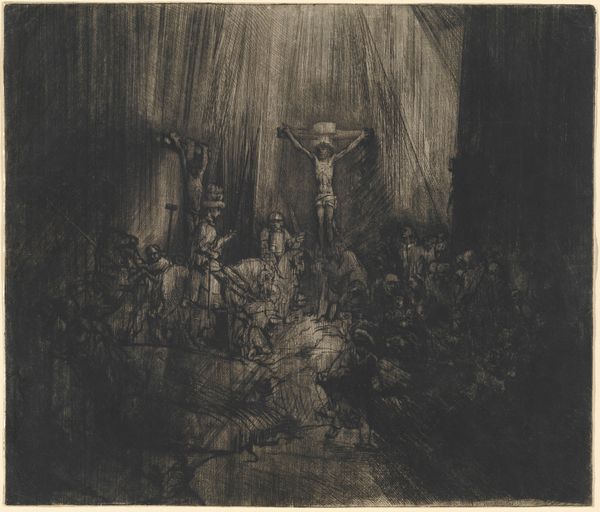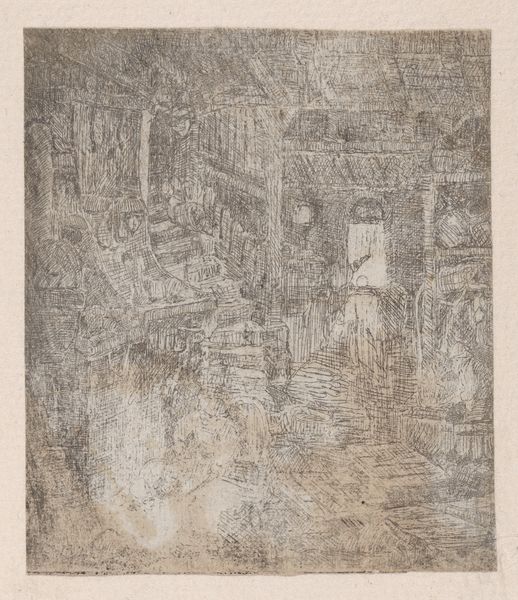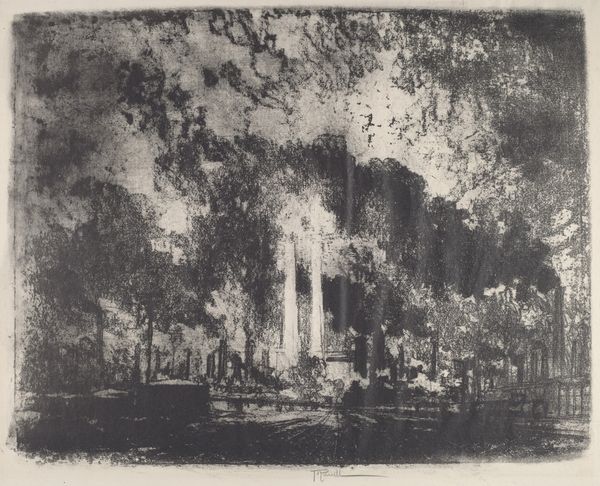
print, etching
# print
#
etching
#
landscape
#
cityscape
#
modernism
Copyright: National Gallery of Art: CC0 1.0
Curator: We're looking at "Changing Shifts, Charleroi", an etching created in 1911 by the American artist Joseph Pennell. Editor: The first thing that strikes me is the sheer density of it all. That smoky atmosphere presses down. Curator: Indeed. Pennell was very interested in depicting the drama of industry. He felt modern industrial scenes evoked sublimity just as much as the landscapes painted in earlier times. We can almost feel the weight of that argument, can’t we? Look at how he uses those massive vertical factory chimneys, dark against the swirling, scribbled smoke to assert human progress. Editor: To be sure, the technical mastery in evoking smoke and light through etching is considerable, right? Think of all those different bites he must have used... you get such an evocative greyscale here. But the sublime is one thing... that darkness also suggests, at least to me, the backbreaking labour. These changing shifts speak to the lived realities of Charleroi’s factory workers. The materials themselves seem to represent both potential and pollution in equal measure. Curator: You're touching on a powerful tension there. The etching style, with its rough, almost chaotic lines, is incredibly effective in suggesting movement. The artist is really emphasizing the idea of transformation and change. But if we focus for a moment on Charleroi... don’t you see that for Pennell, it becomes an emblem of modernity's darker side? Perhaps a meditation on the psychological effect of intense industrial labor. Editor: Precisely. These structures... the factories and railroads... all built by human hands from mined and forged materials are testaments to collective labor, but also, potentially, to the alienation of labor, even as these workers seek to take back the night for themselves as their shifts change. Curator: Well, I think by focusing on that interplay, between industrial growth, symbolic weight, and the real human cost represented by its material consequences, we start to appreciate how layered Pennell’s image truly is. Editor: Right. Pennell compels us to reconsider our relationship with progress itself.
Comments
No comments
Be the first to comment and join the conversation on the ultimate creative platform.
